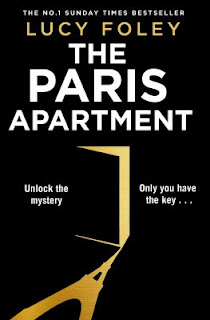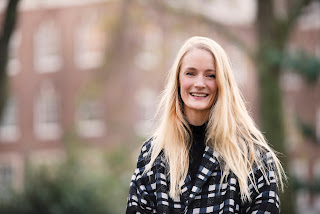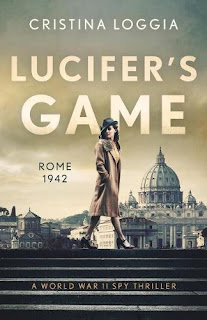Meet Lucy Foley Author Of The Paris Apartment
A foreign country. A different language. A missing brother. Lucy Foley's latest novel expertly weaves these elements together with the story told by some very different characters. Can Jess discover what has happened to her brother and survive the Parisian apartment building's dark secret?
Find out below where the inspiration for the novel came from; the thriller characters that most stick out in her memory; why writers shouldn't worry about doing things the 'right' way; and what Soho Farmhouse, Miss Marple and the Wicker Man have to do with each other (!)
You can download the ebook of The Paris Apartment from Amazon or buy the paperback from Thriller Women's list at Bookshop.org. NB: if you buy books through this link we may earn a commission from bookshop.org, whose fees support independent bookshops.
LF: The setting for this one rather fell into my lap - I was finishing a draft of The Guest List while staying in a rather threadbare (but beautiful!) airbnb in Paris and I loved the atmospheric creepiness of the building - the dark stairwell, the Rear Window-esque set up of all the apartments being arranged around a central courtyard so you could snoop on your neighbours, the smell of stale cigarette smoke hanging on the air in the hallways. It just felt like there was a story to be told there and I wanted to tell it.
TW: How did you come up with the plot for the novel?
LF: The central premise was very clear from the beginning: a sister’s search for her brother. I wanted this to be a ‘missing boy’ rather than a ‘missing girl’ story (I felt like I’d read quite a few of those) and see how that might alter things: e.g. how seriously would the police take the disappearance of a thirty-something year old man? The rest: the other residents in the apartment building, the very dark secret at the heart of the novel, the twists, came later, in layers.
TW: Did you get to travel to Paris for research or are research trips a myth that writers don't have the time or money to do now they can google for information?
LF: For me the research trip is part of the joy of the whole thing. I want the setting to be like a character in the novel, so it was crucial to get the right atmosphere — including all the sounds and sights and smells (good and bad!) that Google, however useful, just can’t give you. I was lucky in that I was literally in Paris when I had the idea for the novel, so I used that as my preliminary research. And then there was a long, Covid-blighted pause in which I had a list of things I wanted to check but couldn’t, because travel just wasn’t possible. Finally, in summer 2021, I managed to get back there with husband and baby in tow and tick them off!
TW: You switch between a number of characters telling the story from their points of view. How did you make each one distinct and do you secretly have a favourite?
LF: It’s a question of layering across several drafts, making sure that the voices on the page are as clear and as clearly demarcated from one another as the voices in my head. I think so much of the editing process for me comes down to that: does the story on the page match the one in my head, do the people on the page feel as fully realised as they do in my imagination? I loved writing all the different characters, hopping between their voices. My favourite, though, was Jess - she was just such fun to write. She’s spiky and straight-talking and brave and massively flawed at once and I hope readers enjoy her even one per cent as much as I enjoyed writing her.
TW: Do you think characters have to be likeable?
LF: No. I particularly love to write ‘dislikable’ characters, playing with the reader’s expectations and sympathies. I love characters you love to hate and hate to love. As both a reader and writer I’m fascinated by villains: what drives them, how do they explain their actions to themselves, in what ways are they misunderstood or surprising or sympathetic? The ultimate example for me is Tom Ripley: we find ourselves repelled by his actions, as the reader but also, uncomfortably, feeling an uneasy kind of empathy for him, even wanting him to get away with his crimes. To me it’s far more of a thrill and challenge to try and write characters like that than straight-up, likeable good guys.
TW: Looking at other people's thrillers, which characters stick out most in your memory?
LF: Thomas Ripley, as above: and I love his modern counterpart, Joe, in Caroline Kepnes’ You series. Then there’s Iris in Ethel Lina White’s brilliant thriller The Wheel Spins - I love that we start off really disliking her and find ourselves rooting for her at the end, our sympathies mirroring the personal growth that she goes through as a character as she’s forced to call on resources she didn’t know she had. Also Rebecca in Daphne du Maurier’s novel of the same name: we never see Rebecca on the page, we never hear her speak for herself: she is a composite made up of the accounts of others and I find that fascinating. She never gets the chance to plead her case. She’s by turns (depending on which character you believe) a paragon, a demon, a seductress, an ideal vision of femininity. It was something I wanted to try and replicate in my depiction of the missing Ben, who we largely only ‘meet’ through the accounts of the other characters.
TW: Now you have three books under your belt in this genre, what have you learned that you wish you knew when you were stating out as a writer?
LF: Not to worry too much about doing things the ‘right’ way: whether that’s hitting a particular daily word count target or plotting everything to the nth degree — I’ve learned I have my own way of doing things and that’s fine. And not to get hung up on the bad reviews. Not everyone is going to like everything you write!
TW: What are you planning for your next book?
LF: I can’t say too much about it at the moment as it’s still at that nebulous stage, but think Soho Farmhouse meets Miss Marple meets the Wicker Man!
TW: Do you have any author goals you've not yet reached?
LF: I’d love to have a go at screenwriting.
Quick fire questions:
TW: New York or Paris?
LF: Gah. So hard. I have to say Paris but I’m also dying to return to New York. But I love them both for their unique identities and the layers and layers of history.
TW: Favourite French food?
LF: Really crispy, salty, skinny frites.
TW: Champagne or Orangina?
LF: Orangina is an excellent drink (the pulp, the fizz, those little dimpled bottles!) but nah, champagne all the way.
TW: Book on your bedside table?
LF: Vladmir by Julia May Jonas.
TW: Best time of the day to write?
LF: First thing in the morning when it’s just getting light and you feel like the only person in the world, or early evening with a cocktail.
Welcome to No.12 Rue des Amants. A beautiful old apartment block, deep in the backstreets of Montmartre. A place of twisting staircases, locked rooms, watchful eyes from every window.
A place of murder. One resident is missing. And another holds the key...




Comments
Post a Comment